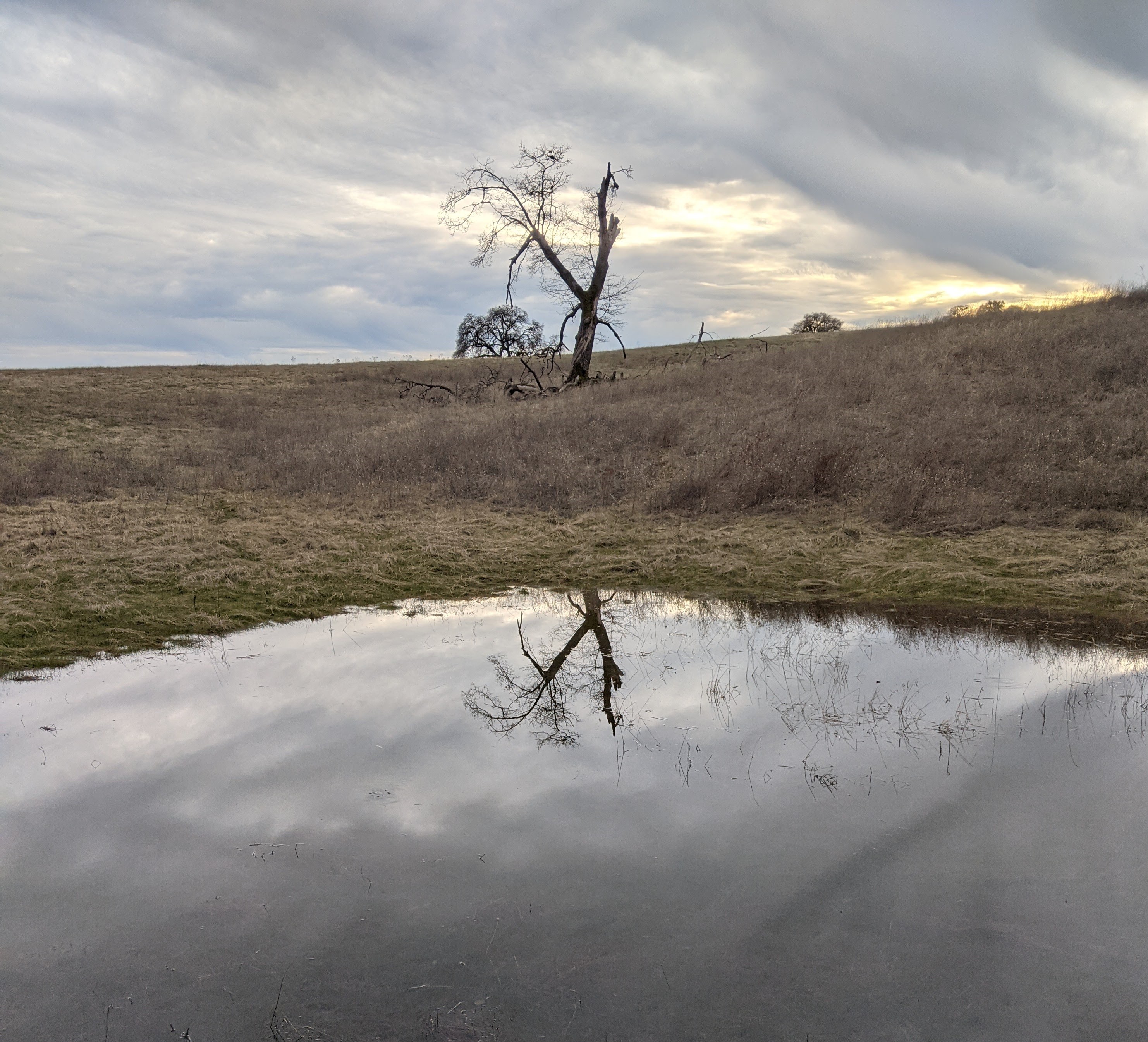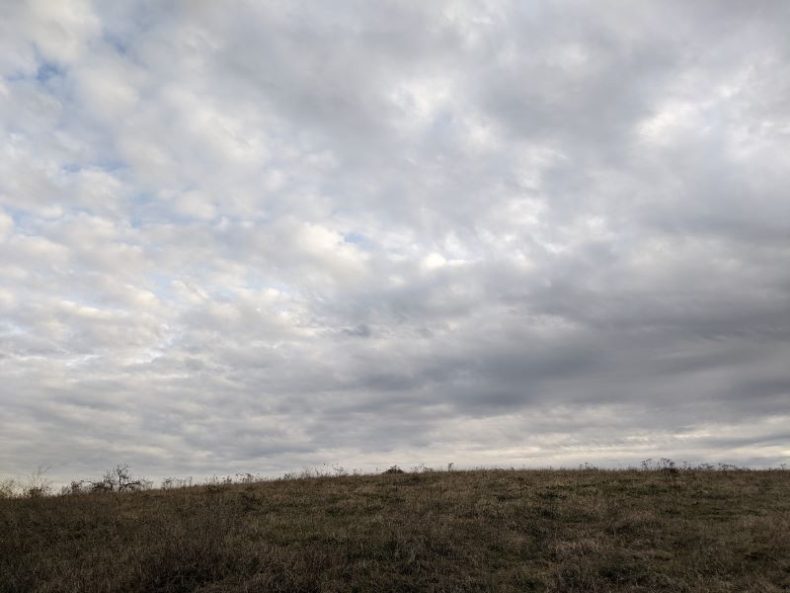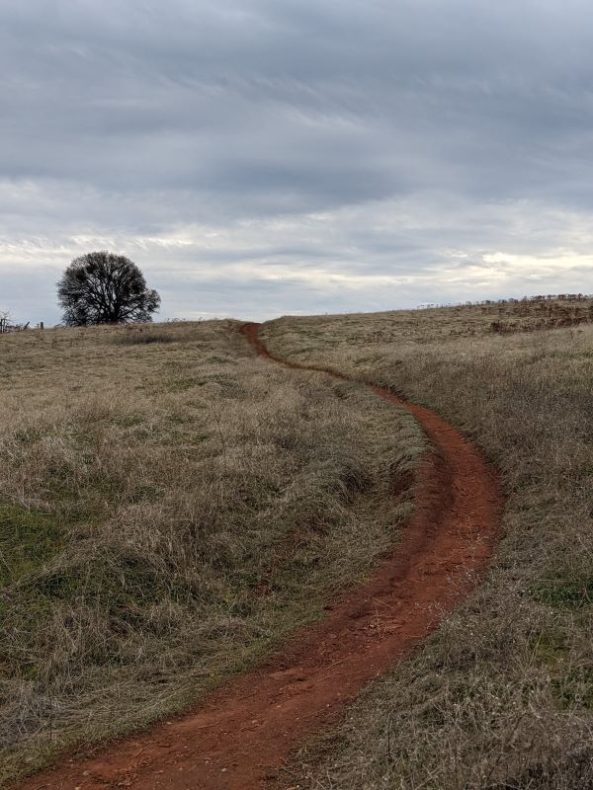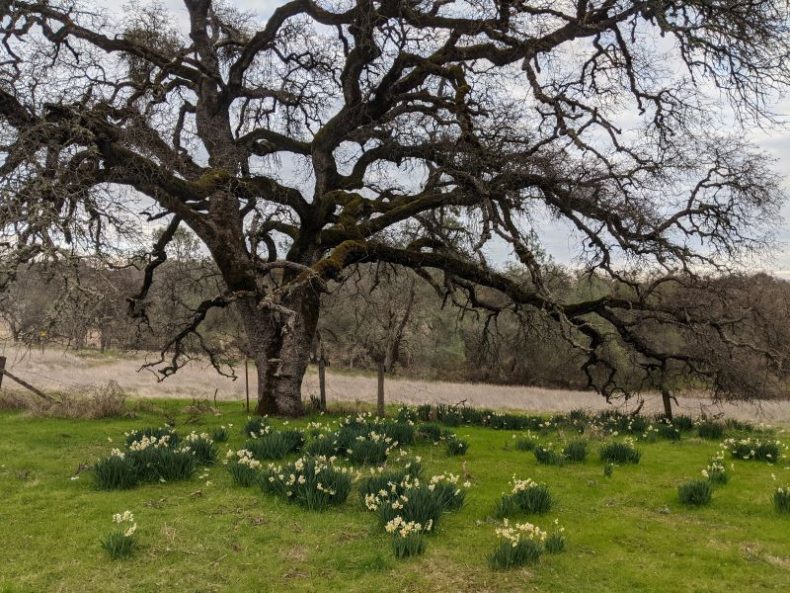
I have always liked the word “foothill.” It evokes not only the low hills at the foot of a mountain, but the pleasure of footing over them. When the hills turn soft and green, I like to imagine placing a marble at the top of a hill and watching it roll. Last weekend, I followed the imaginary marble on a long, solo walk, intending to get at least a little bit lost. I followed a stream until I found a sunlit meadow, ate half my turkey sandwich, then fell asleep. When I woke up it was late, dusk coming on quickly. A pair of deer grazed a few feet from where I had been napping. All around me, a chorus of frogs sang wildly of spring, sex, and resurrection.
Frogs, I recently learned, can survive freezing temperatures because the sugar in their blood protects their vital organs from ice crystals. Their hearts may stop beating, they may stop breathing, but as soon as temperatures get warmer, the frogs wake up to mate and sing. Other frogs can survive long droughts by making themselves a dead skin cocoon, mummifying themselves until the rains return.

Listening to the frogs’ jubilant mating calls reminded me of the 19th-century physiologist George Henry Lewes, whose studies of frog nervous systems informed some early scientific ideas about the nature of conscious thought. Although the psychologist William James typically gets credit for coining the metaphor “stream of consciousness,” some historians attribute it first to Lewes: In one treatise titled “Problems Of Life And Mind: The Sphere of Sense and Logic of Feeling,” Lewes writes: “There is thus a stream of Consciousness formed out of the rivulets of excitation, and this stream has its waves and ground-swell: the curves are continuous and blend insensibly; there is no breach or pause. Any increase in the excitability of a particular organ, or neural group, will by raising its level find it a relative prominence, so that for the instant it will constitute consciousness.”
Lewes had a reputation for being a dilettante — one journalist remarked on his “sparkling shallowness” — but his fluid conceptualizations of conscious thought turned out to be prescient. Now they fit in nicely with the dominant view among neuroscientists that consciousness arises when waves of electrical activity within certain subsets of neurons exceed a certain threshold.
When such activity overcomes my brain’s background chatter, I become momentarily aware of a particular sensation or experience — the patter of raindrops on my skin, the squelch of mud under my boots. Except during sleep or mental illness, my sense of being a self separate from others, experiencing thing after thing, day after day, remains seamless. It may sometimes feel as though I am conscious of far too many things at once, but psychological experiments suggest that the channel of consciousness in which I swim is actually quite narrow, a singular path through the infinite possibilities my senses present.

“The wood, or the forest if you like, is a wild space,” writes the novelist Philip Pullman. The business of the storyteller, he says, is with the path and not the forest. “You can make your story-wood, your invented world, as rich and full as you like, but be very, very careful not to be tempted off the path…don’t leave the path,” he says. “The reason for this is simple: if you leave the path, the readers put down the book.”
I started walking along the muddy trail again, feeling a little disoriented after my nap. I consulted my mental map of the area, trying to figure out where I was in relation to a few old ponds and a blighted pear orchard. I resisted the urge to take out my phone and check my coordinates, determined to exercise my neurons. The sun sank lower, and I regretted taking the path that cut through the most obviously mountain-lion-infested part of the forest.

Eventually I exited the claustrophobic scrub and entered a meadow, overshadowed by what must have been a several hundred-year-old oak. The concrete foundation of a house was buried in the grass beside the tree, the house itself long gone. Next to the foundation bloomed hundreds of daffodils. Someone planted them decades ago, when the house was standing, and here they were, releasing their recklessly sweet fragrance into the early evening sky.
I love walking in the foothills in the dark, when it’s hard to tell the difference between myself and everything else. If I’m honest, I love it when the path gets absorbed by the forest. Not by myself, though. It’s much better to share the night with other humans. I knew where I was now, close to the old pond, within a half mile of the orchard. I could hear the red-winged blackbirds trilling their evening songs in the cattails, the geese circling the pond and honking as they prepared for a water-landing. I’d be home before dark after all, it seemed, with the frogs (my God, those frogs!) singing me home.
Beautiful, thank you.
Thank you, Craig!